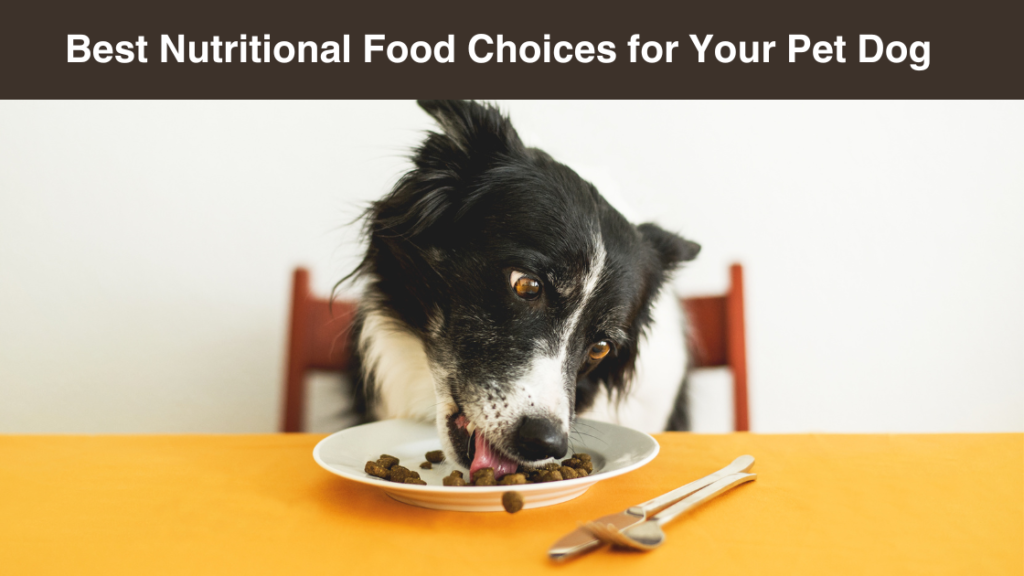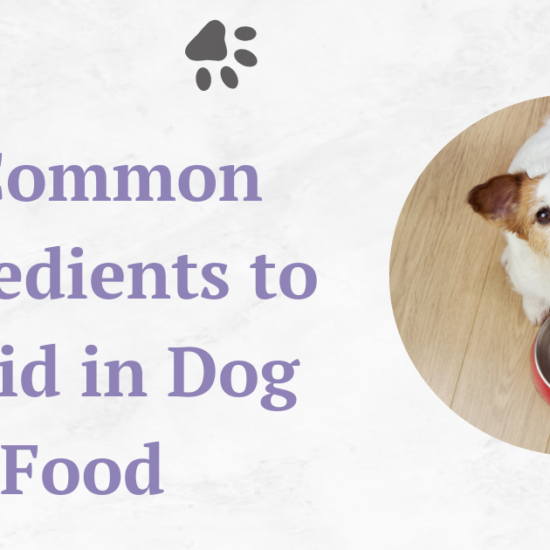Food is essential for survival for any living being and choosing the best nutritious food items is crucial to overall health and well-being. When it comes to your dog, you need to be equally sincere about their food choices as you remain for yourself. Determine the highly-nutritional food choices and feed them to your dog to ensure their best health.
Table of Contents
Introduction
Here’s an elaboration on the best food choices with nutrients for dogs under the categories of vegetables and fruits:
Best Vegetables for Your Dog
It’s best to remain as close to natural food choices as possible. Here are the ten best vegetables for your dog.
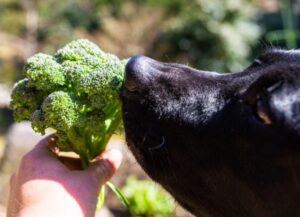
Broccoli: Rich in vitamins C and K, along with fiber and antioxidants, broccoli is a great addition to a dog’s diet when served in moderation. It’s recommended to feed them the florets rather than the stems.
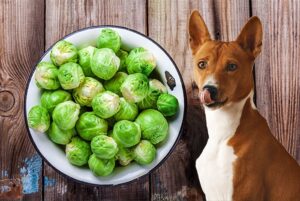
Brussels Sprouts: These are a good source of vitamins K and G, fiber, and antioxidants. When served in small amounts and thoroughly cooked, Brussels sprouts can be beneficial for dogs.

Carrots: High in beta-carotene and fiber, carrots serve as a healthy, low-calorie snack for dogs. They’re also excellent for dental health, as chewing on them can help clean teeth.

Celery: Low in calories and a good source of vitamins A, B, and C, celery can be offered to dogs in small quantities. It’s important to cut it into bite-sized pieces to avoid choking hazards.

Cucumbers: Low in calories and containing vitamins K and C, cucumbers can make a refreshing and hydrating treat for dogs. Ensure to remove the seeds and peel before feeding.

Green Beans: A great source of vitamins A, C, and K, along with minerals, green beans are a healthy addition to a dog’s diet. They are low in calories and can aid in weight management.
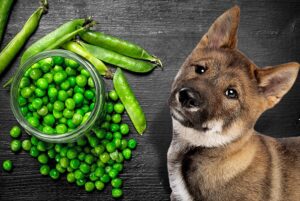
Peas: Rich in vitamins A, B, and K, as well as thiamine and fiber, peas are a good choice for dogs. They can be served fresh, frozen, or canned, but ensure no added salt.
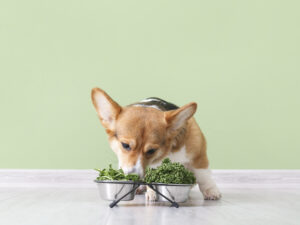
Kale: A nutrient-dense vegetable, kale contains vitamins A, C, and K, as well as calcium and antioxidants. However, it’s essential to feed kale in moderation due to its high oxalate content.

Spinach: High in iron, antioxidants, and vitamins A, B, and C, spinach can be fed to dogs in moderation. However, it’s better served cooked to reduce the oxalates present.

Beets: Rich in fiber, folate, manganese, and potassium, beets offer various health benefits. However, they should be served in moderation due to their sugar content.

Sweet Potato: Loaded with vitamins A, B6, and C, as well as potassium and fiber, sweet potatoes are a healthy and tasty treat for dogs. They can aid in digestion and provide energy.

Pumpkin: High in fiber, vitamins A and C, and low in fat, pumpkin is beneficial for dogs’ digestive health. Plain, canned pumpkin (without added sugars or spices) is recommended.
Note: There might be affiliate links mentioned here. We may receive a commission if you purchase a product through an affiliate link. There is no additional charge for you. Please do your own research before making any online purchases.
Best Fruits for Your Dog
After vegetables, fruits can be the best natural choices to fulfill nutritional needs. Here are the ten best fruits for your dog.

Apples: Apples are a good source of vitamins A and C, as well as fiber. Remove seeds and cores before feeding, and serve in moderation due to the sugar content.

Bananas: Rich in potassium and vitamins, bananas make for a healthy snack for dogs. However, they are high in sugar, so they should be given in moderation.

Blueberries: Packed with antioxidants and vitamins C and K, blueberries are a nutritious treat for dogs. They support overall health and can serve as low-calorie snacks.

Cantaloupe: High in vitamins A and C, as well as beta-carotene, cantaloupe can be a refreshing and hydrating snack for dogs. Remove the seeds and rind before serving.

Cranberries: Cranberries contain antioxidants and can be beneficial for urinary tract health in dogs. Fresh or dried cranberries (without added sugars) can be given in moderation.

Oranges: Rich in vitamin C, oranges can be a healthy snack for dogs. However, they are acidic, so they should be given in moderation to avoid digestive issues.

Peaches: Peaches are a good source of vitamins A and C, but they should only be given to dogs in moderation. Remove pits and avoid canned peaches (which may have added sugars).

Pears: High in fiber and vitamins C and K, pears can be a tasty and nutritious treat for dogs. Ensure to remove the seeds and core before serving.

Pineapple: Pineapple contains vitamins and enzymes beneficial for dogs. Feed in moderation due to its natural sugars and acidity.

Strawberries: Packed with vitamins, fiber, and antioxidants, strawberries can be a healthy, occasional treat for dogs. Ensure to remove stems and serve in moderation.
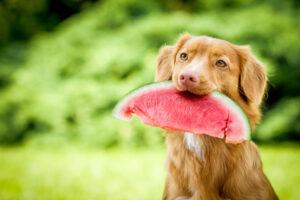
Watermelon: Rich in vitamins A, B6, and C, as well as antioxidants, watermelon is hydrating and refreshing for dogs. Remove seeds and rind before feeding, and serve in moderation.
Conclusion
A balanced diet plays a vital role in defining the quality of life. Choose the best vegetables and fruits to feed your dog and watch them enjoy the best of their lives. Always introduce new foods gradually and in small amounts to ensure your dog tolerates them well. Additionally, consult with your veterinarian before making any significant changes to your pet’s diet.


